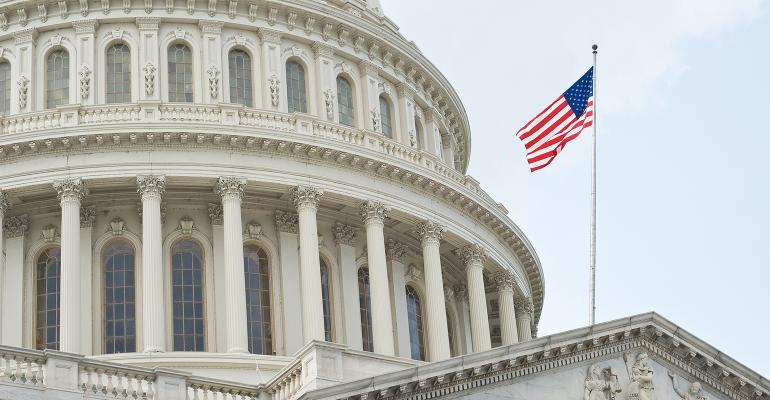As Congress mulls a new stimulus package in an attempt to ease the economic turmoil cause by the spread of COVID-19, several financial services organizations are pushing for legislators to restore a tax deduction for financial advice that was repealed in the 2017 Tax Cuts and Jobs Act. The Investment Adviser Association (IAA), the Certified Financial Planner Board of Standards (CFP Board), the Financial Services Institute (FSI), the National Association of Personal Financial Advisors (NAPFA) and the Financial Planning Association (FPA) were among the groups advocating for the change, amid the coronavirus impact.
Before the 2017 tax reform, taxpayers whose advisory fees accounted for more than 2% of adjusted gross income (AGI) were able to wholly deduct payments for financial planning advice. The groups want Congress to include the deduction in the “phase 4” stimulus bill and make it available to all taxpayers, not just for those who meet the previous AGI threshold; the groups had previously distributed an advocacy document to legislators and staff on the issue.
“We think that’s critical,” said Neil Simon, vice president of government relations at the IAA, about removing the 2% caveat included in the previous deduction. “The COVID-19 pandemic is not only affecting high-net-worth individuals. It’s affecting all Americans.”
Many Americans have been laid off, furloughed or are working from home as a result of the coronavirus in an attempt to socially distance themselves from others to slow the virus’s spread. The public health crisis has led to an economic one, with intense market volatility and previously unimaginable jumps in unemployment claims throughout the country. Easy accessibility to financial advice through a tax deduction could calm the nerves of investors who are warily eyeing the market’s daily dips and jumps, according to Hanna Laver, FSI’s director of legislative affairs and senior counsel.
“One of the benefits of having a relationship with an advisor, when the market has a downturn, is it helps to have someone to call to know you’re still on track to meet whatever financial goals you have in place, whether it’s retirement, paying for kids’ college, or caring for aging parents,” she said. “Many people’s knee-jerk reaction is to sell when the market crashes, and that’s often the wrong thing to do. That’s why that relationship is so important at a time like this.”
The associations pushing for the change had previously advocated for Congress to reinstate the deduction in the $2.2 trillion stimulus package that was passed on March 27, and it is expected that a “phase 4” legislation with further stimulus will be called for. Simon said that the IAA had identified the loss of the deductibility as an issue years before but said it has become more urgent in light of the pandemic. Calling himself “professionally optimistic,” he said that the IAA had gotten some positive responses from legislators and congressional staff on the suggestion.
“It’s a long shot, but we think we have a good shot nonetheless, especially if we can successfully engage financial advisors and planners across the country to contact their own legislators,” he said. “Congress is in recess and won’t be coming back until the end of the month. So the time is now for impressing upon Congress the importance of this issue.”
According to the FSI, increased access to financial planning could make investors feel better about long-term goals while weathering changes in their employment status.
“Most of the legislators are focused on helping Main Street Americans and small businesses,” Laver said. “They’re taking what we’re saying into account and making sure they meet the greatest needs first.”





